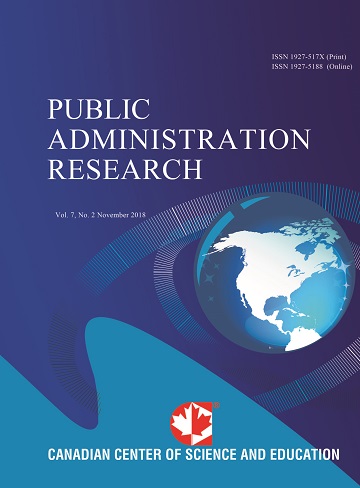Research on Policy Change Based on Policy Process Theory—A Case on “Ban E-Bike” Policy in Guangzhou
- Zhiying Su
- Feng Feng
Abstract
Policy change includes policy innovation, policy succession, policy maintenance and policy termination, which involves result-orientation and process-orientation. The former focuses on scope and direction of policy change itself, and the latter are those factors affecting policy change. Based on policy process theory, multiple streams framework describes the pre-decisive process; advocate coalition and policy network theories explain interactive process from ideas and interests of different actors. Taking “ban e-bike” policy in Guangzhou as a case, to analyze why it arrived on government agenda by multiple streams framework, and explore policy process integrated advocacy coalition with policy network theory, could explain why the policy was repeatedly prohibited, why this policy change process was from single “ban riding” to more stringent “five bans”. Results show the reasons for policy maintenance and continuation that policy is inconsistent with relevant criteria, relative closed policy community, difficult to reconcile different beliefs between support-coalition and opposition-coalition, and lack interaction among network actors for differences in resource and power.- Full Text:
 PDF
PDF
- DOI:10.5539/par.v5n1p1
Journal Metrics
h-index (2017): 7
i10-index (2017): 6
h5-index (2017): 7
h5-median (2017): 13
Index
- COPAC
- CrossRef
- DTU Library
- EBSCOhost
- EuroPub Database
- Excellence in Research for Australia (ERA)
- Genamics JournalSeek
- Ghent University Library
- Google Scholar
- Harvard Library
- Infotrieve
- Jisc Library Hub Discover
- LOCKSS
- Mir@bel
- Norwegian Centre for Research Data (NSD)
- Open J-Gate
- PKP Open Archives Harvester
- Publons
- ROAD
- Scilit
- SHERPA/RoMEO
- Stanford Libraries
- Ulrich's
- UniCat
- Universe Digital Library
- UoS Library
- WorldCat
Contact
- Gabriel TaiEditorial Assistant
- par@ccsenet.org
